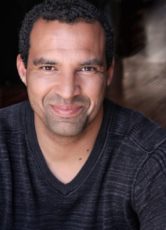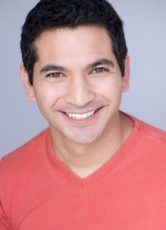
Michael Shurtleff was a major force in casting on Broadway shows during the 1960s and 70s. His casting work includes “Chicago” and “Becket,” as well as the films “The Graduate” and “Jesus Christ Superstar.” Shurtleff’s instruction on auditioning has been instrumental in launching hundreds of successful actors. In turn, he authored the book “Audition,” which is a practical guide for aspiring talent, revealing “everything an actor needs to know to get the part.” Shurtleff always encouraged actors to dream big and to courageously open themselves before the world through performance.
Present your true self in auditions
Shurtleff believes an actor’s greatest asset is his or her authentic self. “The first step to a better audition is to give up character and use yourself,” he insists. In the audition room, present your true self and then react as you would to the unique situation, going wherever the story takes you. “Actors, who should pride themselves on their singularity, are forever trying to be someone else. It isn’t necessary for you, the actor, to like yourself. Self-love isn’t easy to come by for most of us. But you must learn to trust who you are. There is no one else like you,” he says.
In his book, Shurtleff lists 12 guideposts for actors to use as a resource for preparation. Here are some of these guideposts, and tips for preparing on a deeper level:
Relationship
What is your relationship to others in the scene, and how do you feel about each of them? Is it a child who you love unconditionally, or an unreliable coworker who’s disappointed you several times? “Creating relationship is the heart of acting. It is basic. It is essential,” Shurtleff says. But beyond that, he insists, “Every scene is a love scene. The actor should ask the question: ‘Where is the love?’” Consider many options. He encourages actors to say “yes” to possible love stories. For example, if you’re wondering if your character is in love with another, answer “yes” and see what dramatic possibilities emerge from this creative decision. But don’t stop there. Keep exploring all the relationships. Perhaps your character wants revenge on another? Again, say “yes” and explore what happens. Was your character’s heart recently broken? Say “yes” and see what happens.
Conflict
What are you fighting for, and how are you working to get what you want? “An actor is looking for conflict,” Shurtleff asserts. “Conflict is what creates drama. [In life] we are taught to avoid trouble [so] actors don’t realize they must go looking for it. Plays are written about the extraordinary, the unusual, the climaxes. The more conflict actors find, the more interesting the performance.” Viewers yearn to live vicariously through others, seeing what happens to those who take risks that most dare not take in real life.
The Moment Before
Shurtleff insists that each scene starts in the middle. He urges actors to explore what their character was doing just before the scene started. What is your character taking from that experience into this new scene? “Every scene you will ever act in begins in the middle, and it is up to you, the actor, to provide what comes before,” he says.
Humor
Shurtleff asks what it is that keeps the character from giving into despair. “Humor [in a scene] is not about telling jokes,” he insists. “It is that attitude toward being alive without which you would long ago have jumped off the 59th Street Bridge.” Humor is a frame of mind that allows one to survive life’s difficulties. “Comedy is based on pain. And we laugh because we’re so relieved we’re not in their position. It allows us to suffer vicariously without going through the pain. So we laugh.”
Discoveries
Tune into what makes each moment different. Pay attention to the things that happen for the first time. What does your character learn from each new situation? “Take nothing for granted. Make an emotional discovery as often as you can find one in every scene. Ask yourself: ‘What is new?’” Shurtleff urges. “Doing nothing is a really bad choice. No actor doing nothing is ever going to be interesting.”
Communication & Competition
Communication is a circle; you send out feelings and messages and receive them back from others. Shurtleff says, “Listening is not merely hearing; it is receiving the message that is being sent to you. Listening is reacting. Listening is being affected by what you hear. Listening is letting it land before you react. Listening is letting your reaction make a difference. Listening is active.” He instructs performers to find out what the basic fight is in every character as well as in every scene. “An actor must make his needs (goals, wants, objectives) so strong that he is willing to interfere with the other actor in order to get what he needs. Interfering means getting in their way so that what you want is stronger than what they want.”
Shurtleff insists that friendships within a scene are centered on competition. Two people are not friends simply because they enjoy each other’s company. Rather, they compete in some way. Consider if one is more athletic, more successful in the workforce, or has a more fulfilling marriage. “Competition [in a scene] is healthy. Competition is life. Yet most actors refuse to acknowledge this. They don’t want to compete. They want to get along. And they are therefore not first-rate actors,” he asserts. “The good actor is the one who competes, willingly, who enjoys competing … Peacefulness and the avoidance of trouble won’t help in his acting. It is just the opposite he must seek.” Once you determine the competitiveness, find a way to show the friction within the friendship.
Mystery and Secret
What do we not know about the character? What secrets do they keep? What can’t be explained? “No matter how much we know about the other person, there is always something going on in that other heart and that other head that we don’t know but can only ponder. And no matter how we explain ourselves to someone else, no matter how open we are, there is always still something inexplicable, something hidden and unknown in us, too,” Shurtleff insists. Know what romance, dreams, and fantasies are in your character’s heart. “Everyone thinks romance is weak. Yet romance is everyone’s secret dream—it’s why we’re alive.”




